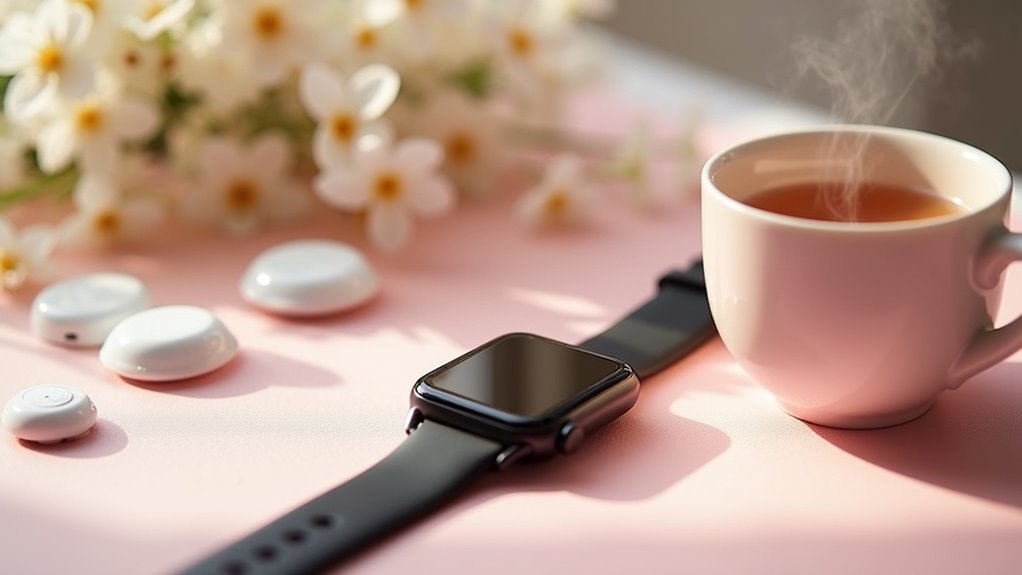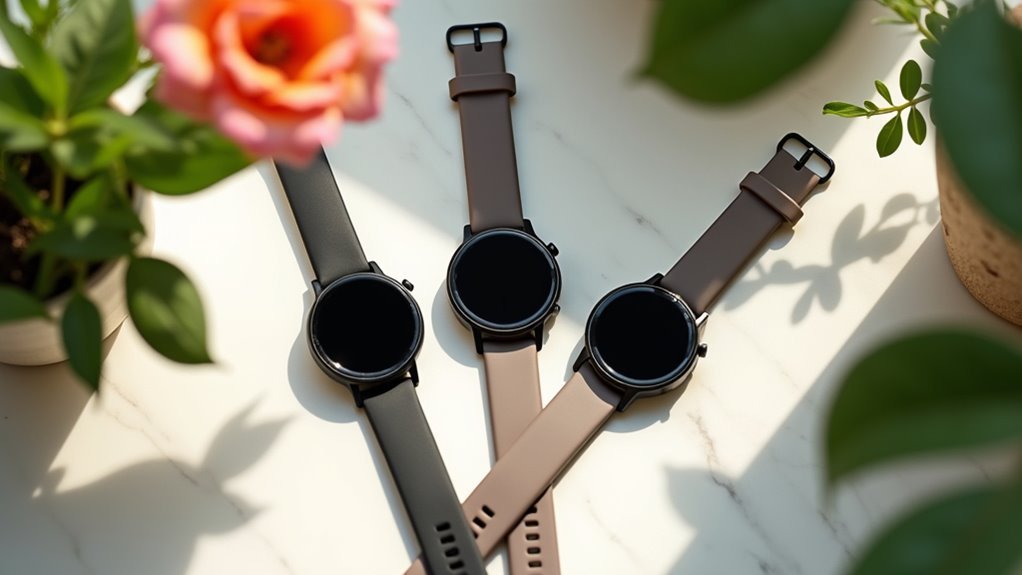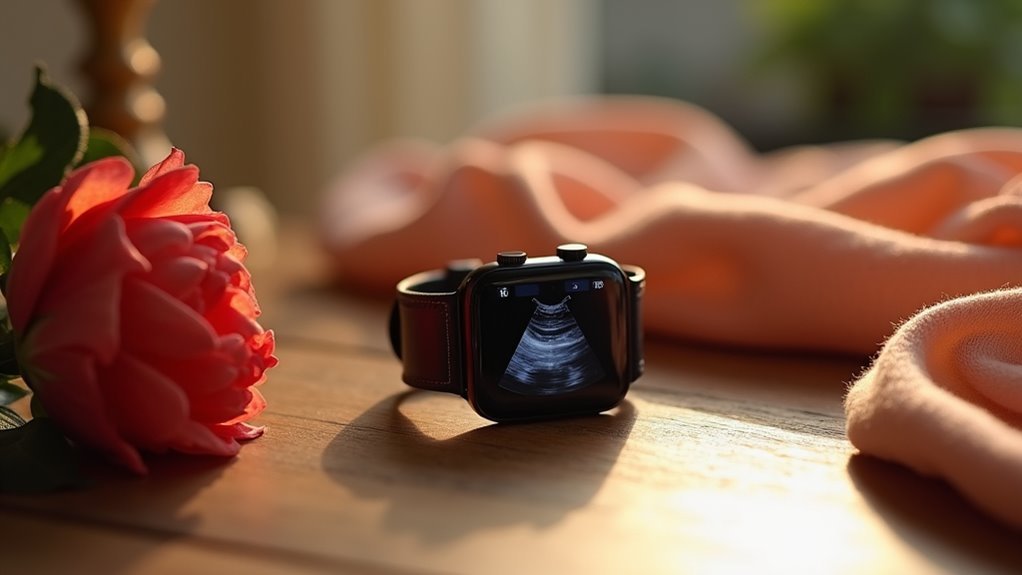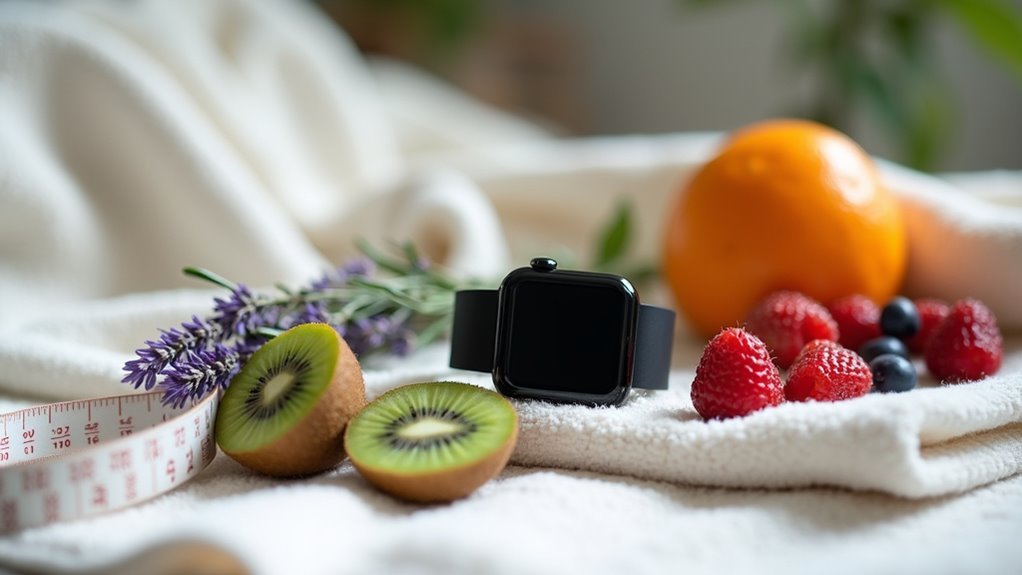You’ll find the Mira Starter Kit leads with 99% lab-grade accuracy, measuring LH and E3G hormones while boosting conception chances by 200% for irregular cycles. The Inito Fertility Tracker analyzes four key hormones—Estrogen, LH, PdG, and FSH—identifying up to six fertile days and confirming actual ovulation. Meanwhile, the Kegg Fertility Tracker uses medical-grade impedance sensing to detect cervical mucus changes while doubling as a pelvic floor strengthener. Each device offers unique benefits that’ll transform your fertility journey.
Mira Starter Kit: Comprehensive Hormone Monitoring With 99% Accuracy

While traditional ovulation predictor kits give you simple yes-or-no results, the Mira Starter Kit revolutionizes fertility tracking by providing precise numeric hormone concentrations with 99% lab-grade accuracy.
This FDA-listed device measures both LH and E3G hormones to predict your 6-day fertile window and pinpoint ovulation day.
You’ll receive the Mira Monitor, 10 Fertility Plus Test Wands, a silicone collection cup, and charging accessories.
The Bluetooth-enabled device syncs with your smartphone app, delivering real-time hormone data and cycle insights.
Unlike basic ovulation strips, you’re getting quantitative measurements that reveal hormone fluctuations throughout your cycle. The monitor’s AI-powered technology has helped boost conception chances by 200% while providing valuable insights for women with irregular cycles or PCOS.
The starter kit’s FSA/HSA eligible, includes 24/7 customer support, and comes with a 90-day money-back guarantee plus one-year warranty.
Inito Fertility Tracker: Lab-Grade Multi-Hormone Analysis for Precise Cycle Insights
Unlike standard ovulation kits that rely on a single hormone measurement, the Inito Fertility Tracker analyzes four key fertility hormones—Estrogen, LH, PdG (progesterone metabolite), and FSH—to deliver lab-grade precision in a home-use device.
You’ll get personalized results based on your unique hormone patterns, making it effective for both regular and irregular cycles.
The device identifies up to six fertile days by integrating estrogen and LH levels, extending your fertile window beyond standard kits.
It actually confirms ovulation through PdG detection rather than just predicting it.
You’ll simply dip test strips in urine, insert them into the smartphone-connected monitor, and receive instant hormone readings through the user-friendly app. The lightweight 110-gram design ensures portability whether you’re testing at home or traveling.
This thorough approach provides medical-level accuracy for informed fertility decisions.
Kegg Fertility Tracker: Advanced Cervical Fluid Analysis With Dual Wellness Benefits
How can you track fertility while simultaneously strengthening your pelvic floor? Kegg’s innovative fertility tracker combines advanced cervical fluid analysis with pelvic wellness benefits in one FDA-registered device.
Using medical-grade impedance sensing technology, it detects changes in your cervical mucus—the most reliable fertility indicator—delivering results in just two minutes daily.
You’ll receive personalized fertility scores and ovulation predictions through the companion app, which also tracks additional indicators like basal body temperature and sexual activity.
The device doubles as a vibrating Kegel ball, helping strengthen your pelvic floor for improved labor and postpartum recovery.
With no subscription fees and durable construction, Kegg provides long-term value across multiple pregnancies, making it a cost-effective alternative to hormone-testing devices requiring ongoing lab analyses. The tracker is trusted by over 60,000 couples who rely on its clinically validated technology for their fertility journey.
Frequently Asked Questions
How Do Fertility Tracker Costs Compare Between Subscription and One-Time Purchase Models?
You’ll pay less upfront with one-time purchases like Clearblue ($91) versus Kegg ($259), but subscription models quickly accumulate costs—Mira’s $60-80 monthly fees total $720-960 annually, exceeding initial investments.
Can Fertility Trackers Help Manage PCOS and Other Hormonal Conditions Effectively?
You’ll find fertility trackers can help manage PCOS by tracking multiple hormones and irregular cycles. Advanced monitors like Mira use AI to differentiate LH surges, though they aren’t specifically validated for PCOS.
What Research Studies Validate the Accuracy Claims of Different Fertility Trackers?
You’ll find most fertility tracker accuracy claims lack robust validation studies. Research shows mixed results, with small sample sizes, limited diversity, and industry conflicts of interest affecting study reliability and conclusions.
Do Fertility Trackers Work Effectively for Women With Irregular Menstrual Cycles?
You’ll find fertility trackers struggle with irregular cycles due to unpredictable patterns, but they’re improving through continuous data collection. Wearables like Oura Ring often outperform traditional calendar methods for your irregular cycle tracking needs.
How Do Smartphone Apps Compare to Dedicated Fertility Tracking Hardware Devices?
You’ll find smartphone apps offer affordability and convenience but rely on manual input. Dedicated hardware devices provide superior accuracy through continuous biometric monitoring, though they require higher upfront investment and learning curves.




Leave a Reply